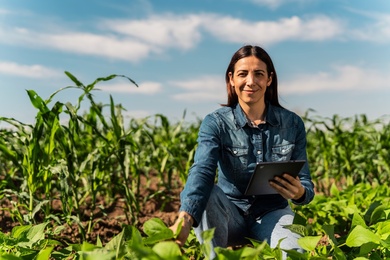Women’s Entrepreneurship Day: Smart companies, pay attention

 My research found that many Jamaican women were not being recognized in the formal labor force. Many instead became microentrepreneurs operating in the informal economy without proper access to capital, resources and market opportunities.
My research found that many Jamaican women were not being recognized in the formal labor force. Many instead became microentrepreneurs operating in the informal economy without proper access to capital, resources and market opportunities.
What I didn’t realize at that time was that this reality was also true throughout Latin America and the Caribbean. Recent studies have found that 23 percent of small companies and 9 percent of large businesses in the region are led by women. Furthermore, between 55-91 percent of women entrepreneurs are operating informally. This informality compounds the challenges for women entrepreneurs – collateral requirements and access to capital, business development services, business networks, and new markets to sell their goods and services.
At the same time, it is recognized that women's entrepreneurship is essential for economic growth and job creation. Women entrepreneurs often hire other women, thus helping improve the quality of life for those women, their families and communities. When women have access to decent employment and income, they can improve the quality of life for themselves and their families. They can purchase the goods and services they need, and they pay taxes.
Why should companies care?
Women are powerful consumers, controlling $20 trillion in spending and influencing up to 80 percent of purchasing decisions worldwide. Financial institutions are just beginning to realize the market potential for the unbanked and underserved women in the region.
In 2010, Banco Nacional de Costa Rica launched Banca Mujer, a program providing financial services and business support for women's entrepreneurship. By 2013 they had made loans to almost 15,000 clients, prompting their local competitors to develop rival products. Other banks around the region are now exploring women-led companies as a new market segment.
Bringing women entrepreneurs to market is another important piece of the equation. Companies including Wal-Mart and Marriott International are partnering with organizations such as WE Connect International to identify and source from women-led companies in the region because they recognize the value proposition of these companies – high quality goods and services, competitive prices and local development impact.
Since I first read that article on Jamaica, I have championed gender inclusion as a necessity for sustainable development in Latin America and the Caribbean. My work has led me to many countries where I’ve seen firsthand how the private sector plays an active role in development. Investing in women's entrepreneurship is one of the most concrete aspects of that contribution. To do so means:
- recognizing the women graduating from universities as highly qualified labor
- providing access to capital for women entrepreneurs
- investing in training for loan officers and procurement specialists
- purchasing goods and services from women entrepreneurs
- considering women as powerful and influential consumers
For savvy companies and financial institutions, this is a business opportunity and a way to get ahead of the curve. For me, this is more than business, it’s development. The private sector is the engine of the economy. Let’s also make it the engine of development and gender equity.
This article was adapted from a previous post in March 2014.
LIKE WHAT YOU JUST READ?
Subscribe to our mailing list to stay informed on the latest IDB Invest news, blog posts, upcoming events, and to learn more about specific areas of interest.
Subscribe



